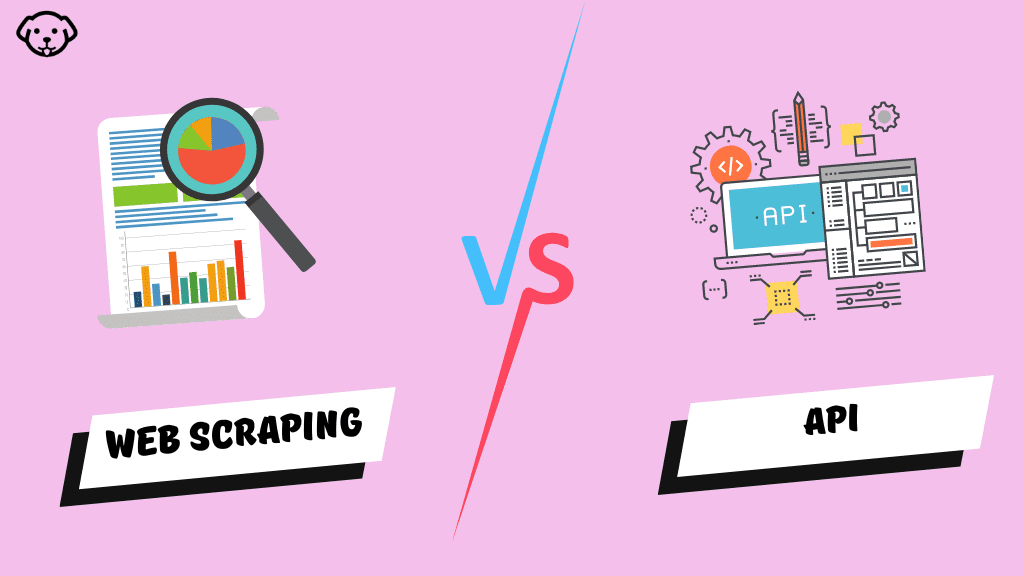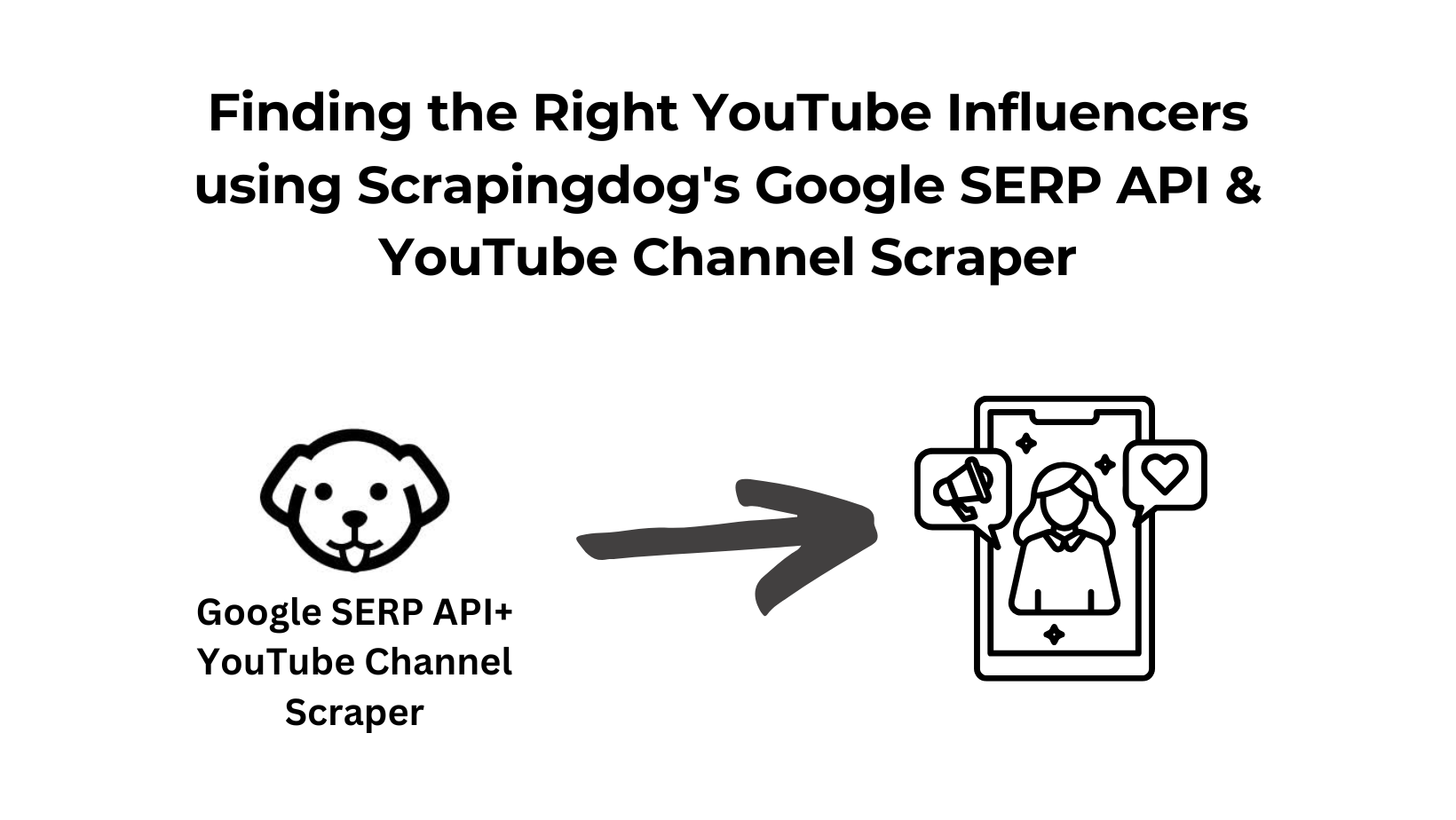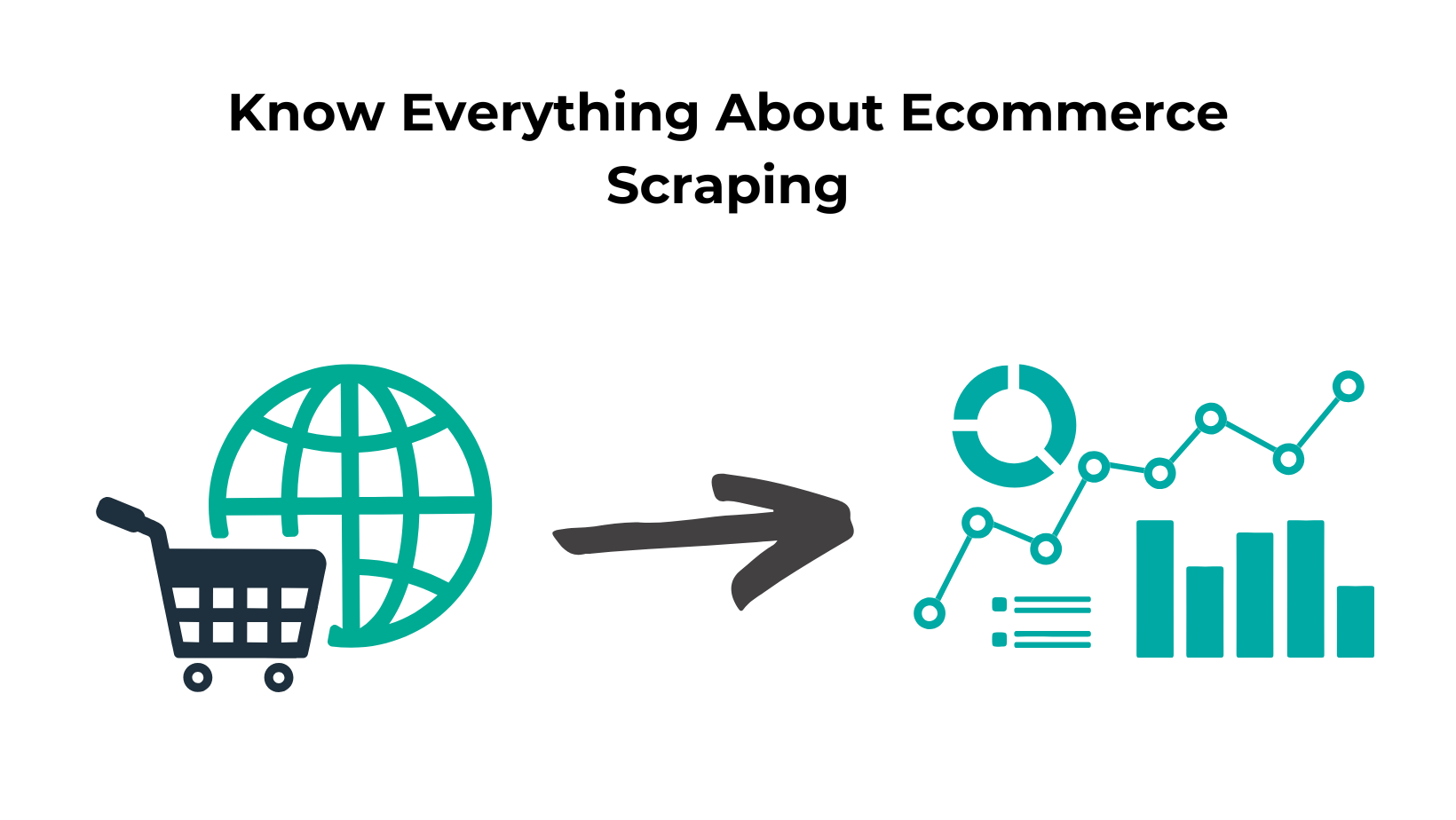As we all know data has become like fuel these days and every important decision for any company or organization is backed by solid data research and analysis.
But how to get this data easily and seamlessly?
With many ways of extracting data, using web scrapers and APIs is one of the widely used methods.
In this blog, we will understand the difference and similarities in data extraction by using web scraping and API. Further, we will identify which method is a more reliable and scalable solution.
What is web scraping?
Web scraping or data extraction is the art of extracting data from any website and delivering it in formats like JSON, PDF, HTML, etc.
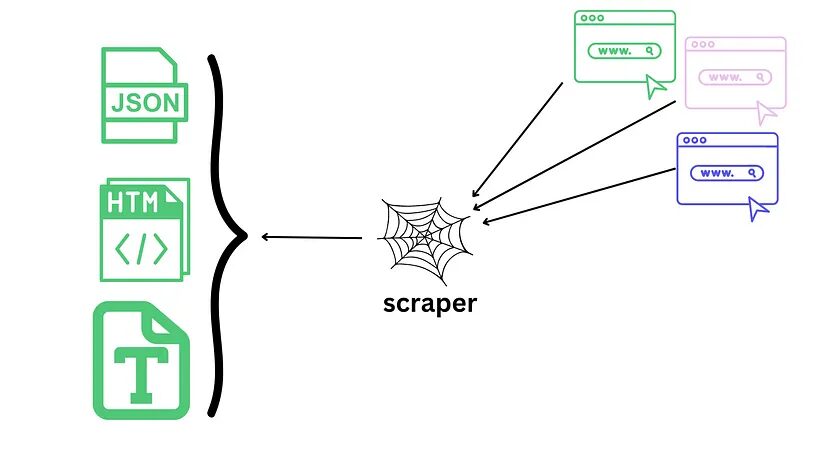
Web Scraping can be done either by using coding languages like Python, NodeJs, Rust, etc or by using data extraction APIs and tools. I have written a few blogs on web scraping with these languages. You can check them out.
This data then can be used for various purposes including market analysis, lead generation, price monitoring, etc. You can automate the Web scraping process with webhooks. This improves the efficiency of your data collection and ultimately boosts the productivity of your employees.
Read More: Know web scraping applications!!
Benefits of Web Scraping
Here are some of the benefits of web scraping:
- Time-saving: Automating the process of data collection through web scraping can save a significant amount of time compared to manual data-gathering methods.
- Can Increase Data Accuracy: Web scrapers can collect data consistently and accurately, reducing the risk of human error.
- More Data at Scale: Web scrapers can collect data from multiple sources simultaneously, providing a more comprehensive view of the data.
- Cost-effective: It can be a cost-effective way to collect data, as it eliminates the need to pay for expensive data sources or manual labor.
- Flexible: Web scrapers can be customized and programmed to collect specific data, allowing for greater flexibility in data collection.
- Data Freshness: They can be set up to run on a schedule, ensuring that the data is always up-to-date and relevant. By integrating an AI schedule generator, you can further optimize the timing of data collection to align with your specific business needs.
- Diverse data sources: Web scraping can be used to collect data from a variety of sources, including websites, databases, and APIs.
Disadvantages of web scraping
With many advantages and automation features of web scraping, there are some limitations to it.
Here are some of the disadvantages of web scraping:
- Legality issues: Web scraping may violate copyright and trademark laws, as well as terms of service agreements for websites. Some websites may also block scrapers, making it difficult to collect data.
- Technical limitations: Web scraping can be limited by the structure and format of the websites it scrapes, as well as the security measures in place to prevent data scraping.
- Performance issues: Web scraping can be resource-intensive and may slow down or crash a computer or server if not done correctly.
- Maintenance and updating: Web scrapers need to be regularly maintained and updated to keep up with changes to websites and web technologies.
- Cost: While web scraping can be cost-effective compared to manual data collection methods, it still requires a certain level of investment in hardware, software, and staffing.
What is an API?
API (Application Programming Interface) is like a bridge between two or more servers/software. There are different types of APIs, that help the two software/servers to interact with each other on demand. Using APIs servers can make seamless connections with each other.
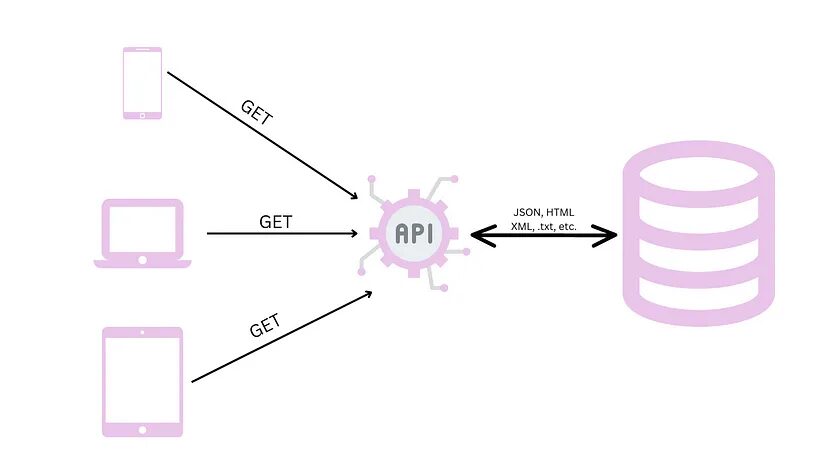
There are various applications of an API.
- Mobile apps can communicate with their database server using an API.
- III party apps can use APIs for authentication.
- Exposing multiple API endpoints can help others to access your data.
Now, an API can respond in multiple ways. It can return a response in JSON, HTML, XML, text file, etc. It depends on the server which is holding the data.
Benefits of using an API
- Efficient: The Creative Suite API is an efficient way to collect content without putting additional strain on your hardware.
- Ease of use: By using an API, a developer can simply provide credentials to access the data, which is usually presented in either XML or JSON format, making it easy to process.
- Large-Scale Data Collection without Hindrance: This method also eliminates issues like Javascript rendering and CAPTCHA avoidance, making it ideal for collecting large amounts of data quickly and effectively, compared to web scraping.
- Legal Trouble: There will be no legal trouble while using APIs, as you will have permission from the host website for data access.
Disadvantages of using an API
- Dependence on the API provider: The functionality of the API may be limited and can be controlled by the provider. If the API provider changes its policies, this can directly impact the data extraction capabilities.
- API rate limits: Most API providers will impose limits on the number of API requests you can make in a given time period, which translates to the limited collection of data in a set frame of time. It is a major disadvantage for those looking for scalable data harvesting solutions.
- Restriction in API key: This may be limited to accessing the data via restricting it to the data extraction limit, geolocation, etc.
What is web scraping API
A web scraping API is a useful tool for extracting data from websites. It has several key benefits, such as the ability to switch between proxies, handle JavaScript rendering, bypass CAPTCHAs, and prevent blocking, all with a simple API call.
This eliminates the need to build a scraping application from scratch, as well as the hassle of managing proxies, maintaining infrastructure, and dealing with scaling issues.
With a web scraping API, you have the option of specifying various parameters for the request, such as the proxy country and type, custom headers, cookies, and waiting time. On top of that, you can select params if the website needs JS rendering before extracting the data.
So while scraping you have to make a GET request to the web scraping API instead of the target website itself. The API will handle all the hassles of retrying a request and solving a captcha.
Advantage of using web scraping API
There are several advantages of using a web scraping API over just using a web scraper or an API for data extraction:
- Flexibility: Using a web scraping API you won’t have to worry about changing proxies on every request. You will be able to send custom headers. You can set geolocation as well.
- Simple to use: With a web scraping API, you don’t need to write complex scraping code or manage proxies and infrastructure. Instead, you can make a simple API call to extract the data you need and too from any website.
- Scalable: A web scraping API is typically hosted on a scalable infrastructure, so it can handle large amounts of data extraction without any hassle.
- Reliable: A web scraping API provided is likely to be more reliable than a custom-built web scraper, as it is designed and maintained to handle a variety of scraping tasks.
- Legal Issues: A web scraping API user can scrape any website without getting into legal trouble. Web scraping API will always use its own proxy cluster. This will keep the original IP of the user hidden.
Web Scraping vs API: What’s the difference
Web scraping involves gathering specific information from multiple websites and organizing it into a structured format for users. On the other hand, APIs allow seamless access to the data of an application or any software, but the owner determines the availability and limitations of this data.
They may offer it for free or charge a fee and also limit the number of requests a user can make or the amount of data they can access.
While web scraping offers the flexibility to extract data from any website using web scraping tools, APIs provide direct access to specific data. The availability of data through web scraping is limited to what is publicly available on a website, whereas API access may be limited or costly.
API typically allows for data extraction from a website, whereas web scraping enables data collection from multiple websites. Additionally, APIs provide access to a limited set of data, whereas web scraping allows for a wider range of data collection.
Web Scraping might require intense data cleaning while parsing the data but when you access an API you get data in a machine-readable format. Along with this extracting data through an API is much faster than web scraping.
Web Scraping vs API: What’s the similarity
Both web scraping and API scraping are popular techniques used by data engineers to obtain data. Although the methods differ, they both serve the purpose of providing data to the user.
These techniques allow for the collection of customer information and insights previously unavailable, as well as the gathering of emails for email marketing and lead generation & much more. There are endless possibilities with the data you collect.
Frequently Asked Questions
No, web scraping does not necessarily require an API. Web scraping involves extracting data from websites using automated tools, while an API (Application Programming Interface) is a way for different software systems to communicate with each other. While an API can be used as a source for web scraping, it’s not a requirement for the process. Web scraping can be done on websites without APIs by directly accessing and extracting the HTML content of a page.
Scrapingdog can be used for web scraping at ease and at economical pricing. The data extraction rate is quite high and it can be used to extract data at scale without any blockage.
Yes, web scraping is part of ETL, for data extraction, you should know the basics of HTML.
Conclusion
Whether you need to use both APIs and web scraping tools depends on your skills, the websites you want to target, and your objectives.
If an API offered by the website is expensive then web scraping is the only way left for data extraction.
If you are an agency that needs help with integrating data from several APIs or other sources. Acuto can help you by creating a custom solution for you.
However, there is a middle ground where you can use both meaning an API for web scraping to make this data extraction thing more powerful.
I hope you got a clear picture now. Now you can make your own decision whether to go with APIs or web scraping or integrate both.
I hope you like this blog and if you do then please do not forget to share it with your friends and on your social media.
Additional Resources
Here are a few additional resources that you may find helpful during your web scraping journey:
